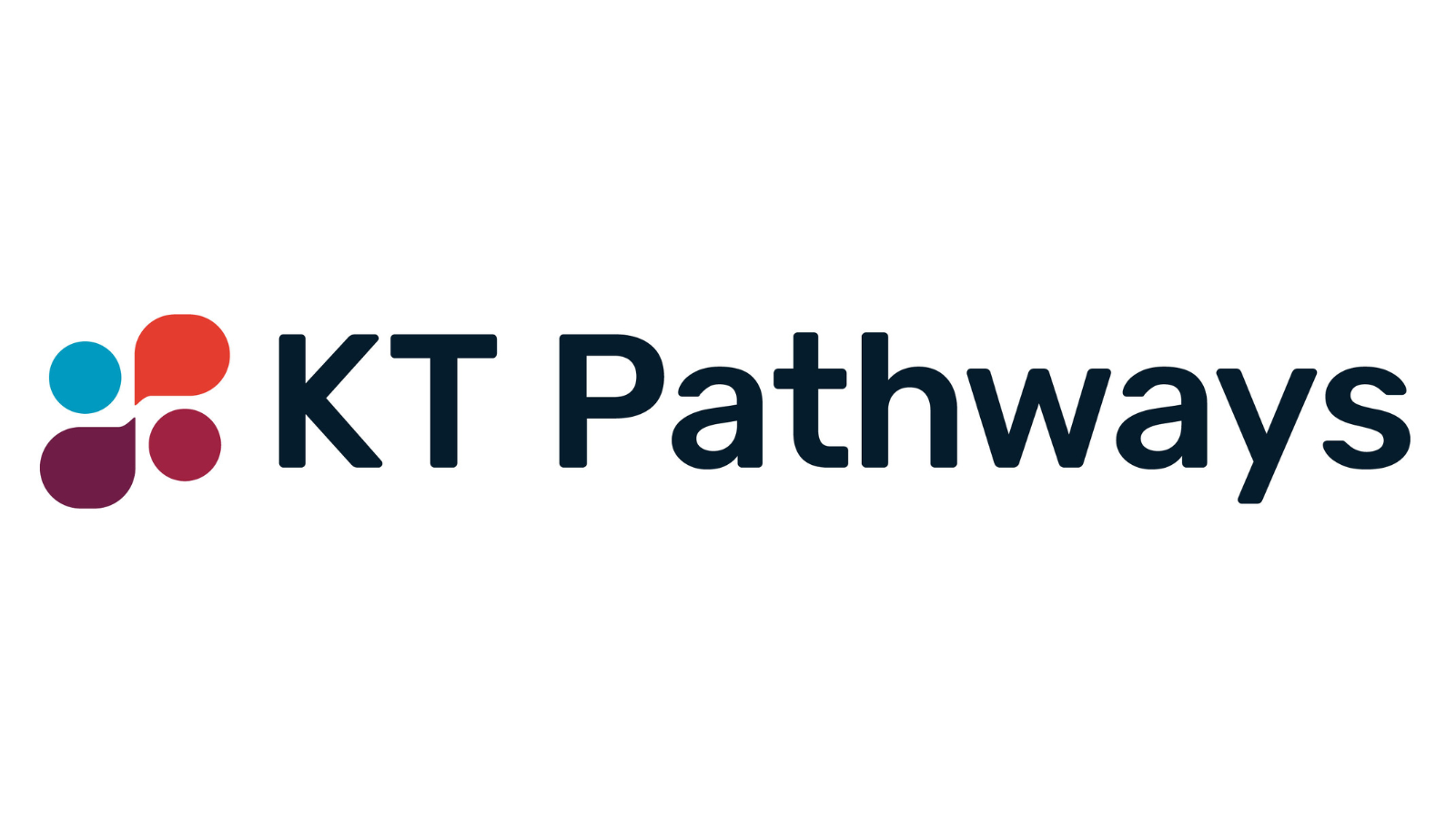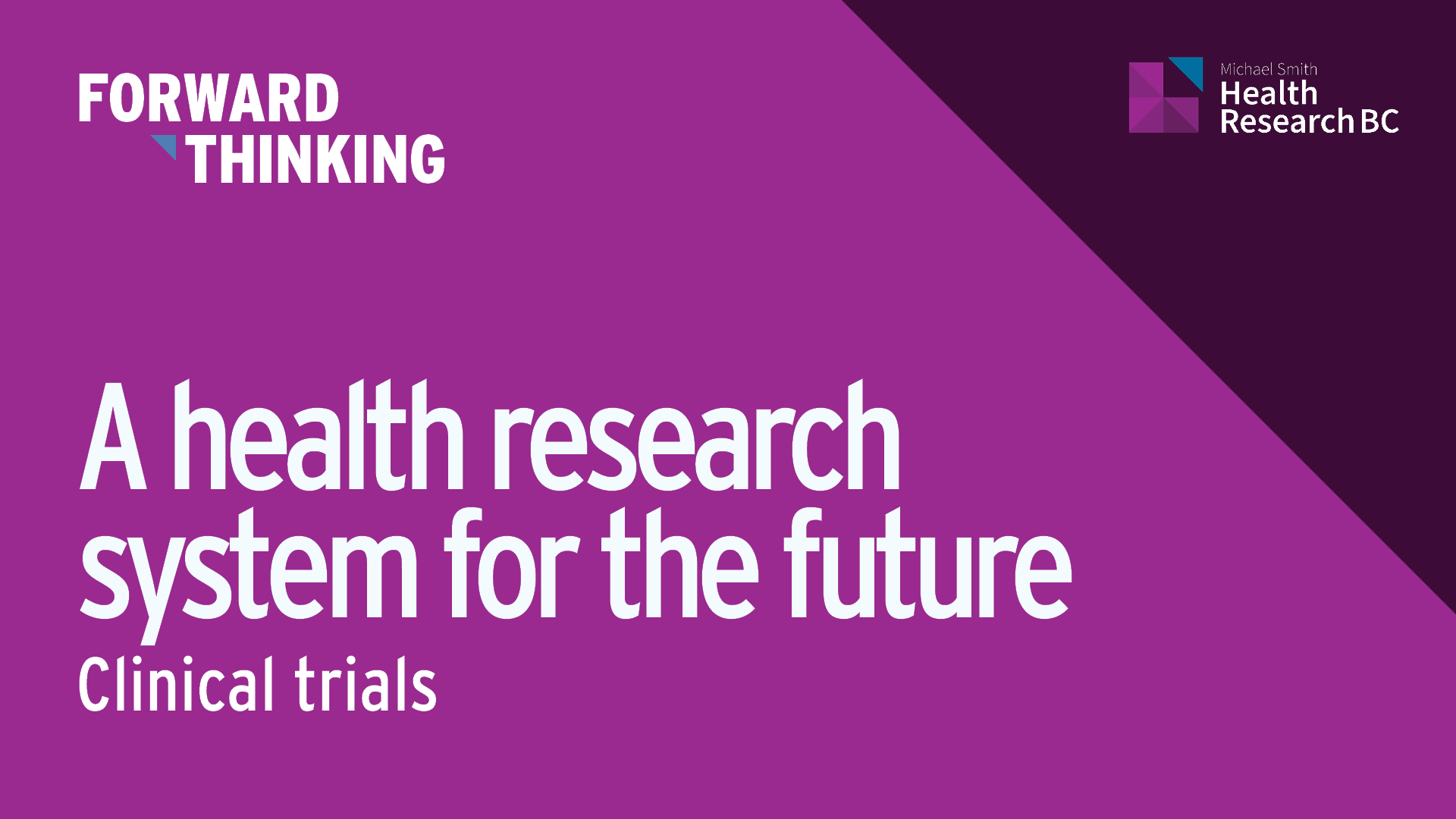It’s all about the evidence! Funders as research users
11 July 2018

Knowledge translation (KT) is an important element of all MSFHR programs. Our team of KT specialists work to advance both the science and practice of KT with the goal of equipping both BC health researchers and the users of health research with the tools they need to increase the impact of their research and to make evidence-informed decisions or policy respectively.
Gayle Scarrow, MSFHR’s Director, Knowledge Translation, oversees the Foundation’s knowledge translation strategy. Here, she explores how a funder can contribute to the science of KT.
Forward Thinking is MSFHR’s blog, focusing on what it takes to be a responsive and responsible research funder.
It’s all about the evidence! Funders as research users
Funding health research is a no brainer for a research funding organization — it’s the meat and potatoes (or beans and rice for vegetarians!) of what we do. It doesn’t stop there though. The hard truth is, if research evidence isn’t used, its impact will be zero. As MSFHR’s Knowledge Translation Manager Gen Creighton wrote in last month’s blog, implementing evidence is a social change project that involves all of us.
At MSFHR, we’ve thought a lot about the funder’s role in supporting the use of research evidence through KT — the broad range of activities meant to improve the use of health research evidence in practice, policy and further research. As a learning organization, MSFHR uses research and other forms of evidence to ensure that our work is evidence-informed. For example, our new suite of funding programs, developed in 2016, was informed by a review of the academic and grey literature and consultations with our stakeholders and other health research funders to ensure they are as effective and impactful as possible.
We’ve also developed an evidence-informed KT model that outlines five key roles we believe health agencies can play to maximize the use of evidence in decision-making: building the KT capacity of researchers and research users; managing KT projects; funding KT; advocating for KT; and advancing the science of KT.
In today’s blog, we’ll focus on that last piece — advancing the science of KT — exploring why it is important for a funder to contribute to the body of evidence on what works related to evidence use.
What’s the science of KT?
Promoting evidence use — using KT frameworks, strategies, and methods to generate, disseminate and/or implement evidence — is about ‘doing’ KT (i.e. KT practice). The science of KT is simply the study of KT practice.
An example would be using a fitness app to encourage people to increase the distance they walk every day. Developing and promoting the use of the app and all that entails is KT practice. How far people should walk is the research evidence being implemented; the app is the intervention (the KT tool) used to implement the evidence; the result of using the app is the effectiveness of the intervention. KT science doesn’t look at this specific intervention (we already know that ideally many people should walk further, and that an app can measure the distance they walk) — rather, it studies the ‘with who, when, where, how, under what conditions’ the app (and the work to develop and promote it) works or doesn’t work.
At MSFHR, we evaluate our KT programs and other activities by looking at typical indicators — for example reach, use and usefulness — but understanding the ‘why, how, when, for whom, under what conditions’ they work or don’t work, or what additional supports we need to provide to make them more effective, is equally important. What follows is an example of a partnership where we were able to explore the factors influencing the impact of one of our KT capacity building activities — a KT training workshop for researchers and research users.
When there isn’t enough or any evidence
We define building KT capacity as providing resources and training to researchers and research users on how to do and study KT. To date, we’ve done this in a variety of ways. We have offered webinars for KT beginners in partnership with Arthritis Research Canada; we have produced and written KT-focused videos and blogs; we’ve hosted events that bring together researchers and research users to learn from and share with each other; we have consulted with researchers on how to do KT; we’ve compiled a list of essential KT reads; and we offer KT training workshops in partnership with health authorities, research institutes and universities.
With respect to our training workshops, we wanted to better understand what kind of training will build KT practice capacity and advance our MSFHR goals in support of evidence use. When we were approached to collaborate with researchers to study the “Foundations in Knowledge Translation” training initiative, we jumped at the chance. Our research partners were the Knowledge Translation Program, St. Michael’s Hospital Toronto; University of Toronto; University of Ottawa; and Vancouver Coastal Health Research Institute — the workshop itself was developed by the St. Michael’s Hospital researchers who were interested in informing their ongoing training opportunities. The research team’s interests focused on ‘what aspects of the workshop delivery benefited or hindered increased, long-term, sustainable KT practice change by participants?’
The study was the first longitudinal evaluation of a training initiative focused on KT practice. What we found from the study were positive participant outcomes sustained until 24 months (the length of the study) after the initial workshop. A fantastic finding considering offering KT training workshops is one of our core KT capacity building activities!
Additional key findings
- Tailoring the training initiative content to the local needs of the participants prior to the workshop made the content more relevant to participants and was seen as having a positive impact on their knowledge and engagement.
- Organizational leadership was important to teams’ successful implementation of their projects. Teams that had high self-reported organizational support from their decision-maker partners to facilitate access to resources and funding were more successful at implementing their KT project and sustaining outcomes while low organizational support and commitment was considered a barrier.
- Learned KT competencies were not limited to participants but spread to influence other projects through participants’ informal knowledge sharing with co-workers. Some participants became a KT resource for their organization or team, championing KT activities; this was particularly seen where participants had a role in the organization that lent itself to supporting organizational culture change for KT.
The study findings have informed how we have designed subsequent KT training opportunities, as well as those designed and offered by our researcher partners. The findings also have implications more broadly for individuals and organizations working to increase KT competencies of their staff for the purpose of increased uptake of research evidence.
Other funded research we currently are, or recently have, collaborated on as research users includes an international programme of research testing assumptions about iKT and enhancing the uptake of systematic reviews — the latter is the first study the research team is aware of to engage health-care managers and policy-makers in the development and testing of formats for presentation of systematic reviews.
We’ve also published on our own work or with others to add to the KT literature; topics include KT training for peer reviewers; a call to action to mobilize knowledge in complex health systems; the role of a research funder with respect to research and its impact; and a protocol and paper for a scoping review on KT competencies.
Funders need to be research partners too
As a responsive and responsible funder, it’s important for us to be a research user as well as a KT resource. Furthering implementation science is critical to increasing the body of knowledge on how evidence is used in practice, policy and further research. As health research funders, we have a valuable role to play in facilitating the development and use of research evidence. Partnering on implementation science studies is one way we can do that.
Ultimately it’s about using our unique position in the health research ecosystem to provide a range of supports to our award holders, partners and government to help everyone increase the use of evidence to improve health care and the health care system for British Columbians.





